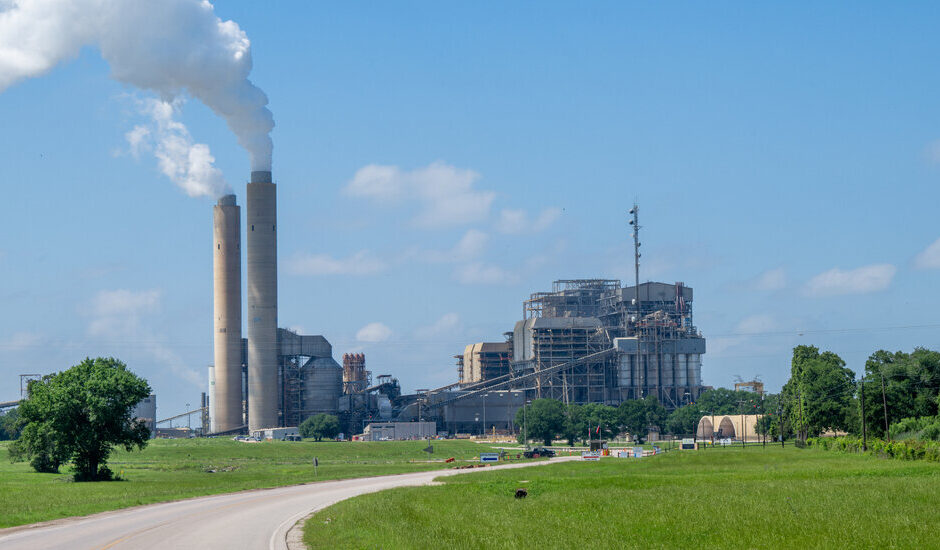The Environmental Protection Agency plans to weaken a Biden-era regulation that required power plants to slash pollutants, including the emissions of mercury, a neurotoxin that impairs brain development, according to an internal agency document.
Lee Zeldin, the E.P.A. administrator, intends to announce the proposed changes within days, according to two people who have been briefed on the agency’s plans. Mr. Zeldin also will release a separate proposal to eliminate limits on greenhouse gases from power plants, according to the people, who spoke on the condition of anonymity because they were not authorized to discuss agency plans.
Together, the changes represent a repudiation of efforts taken by the Biden administration to tackle climate change and address the disproportionate levels of air pollution faced by communities near power plants and other industrial sites. Once finalized, likely at the end of this year, both rules are expected to face legal challenges.
The moves are part of a broad strategy by the Trump administration to expand the use of fossil fuels, the burning of which is dangerously heating the planet. President Trump has taken several recent steps to try to boost the use of coal, the dirtiest of the fossil fuels.
An E.P.A. spokeswoman would not confirm the details of either regulation or when they would be made public. But Mr. Zeldin in a statement said he is “opposed to shutting down clean, affordable and reliable energy for American families.”
“E.P.A. needs to pursue common-sense regulation to Power the Great American Comeback, not continue down the last administration’s path of destruction and destitution,” he said.
Mr. Zeldin’s plan for mercury and other toxic substances, which was viewed by The New York Times, said that the Biden administration “improperly targeted coal-fired power plants” when it limited pollution levels in 2024.
The new rule, according to the document, would loosen emissions limits for toxic substances such as lead, nickel and arsenic by 67 percent. For some coal plants, the proposed rule weakens mercury limits by 70 percent. It also repeals a requirement that all plants continuously monitor the exhaust coming out of their smokestacks.
The changes would reverse the most stringent requirements imposed by the Biden administration, which aimed to curb dangerous toxins while also encouraging the transition away from coal-burning power plants and toward cleaner energy sources like solar and wind.
When coal is burned, it releases mercury, which can contaminate land, oceans and streams. Coal-fired power plants account for 44 percent of all mercury emissions in the United States, according to the E.P.A.
Once in the atmosphere, mercury emissions convert into a form known as methylmercury, which can accumulate in fish and other food. Exposure can cause serious neurological damage in developing fetuses and children, and has been associated with respiratory ailments and heart disease in adults.
“Children’s brains are developing at a very rapid pace, and mercury in their bodies can seriously impact their development,” said Matthew Davis, a former E.P.A. official whose research underpinned the country’s first rules cutting mercury emissions from coal power plants during the Obama administration.
The federal government first cracked down on mercury from power plants in 2011 under President Barack Obama. That regulation was rolled back in the first Trump administration but strengthened under the Biden administration. In October the Supreme Court denied a request from 23 Republican states and a handful of coal companies to block enforcement of the policy.
In April, the Trump administration also granted dozens of coal-fired power plants exemptions from limits on mercury and other air pollutants. Mr. Davis, currently a vice president of federal policy at the League of Conservation Voters, an environmental group, called that a “get out of jail free card” for polluters.
“This administration wants to take a wrecking ball to our health protections and they don’t care about the health of the future generations whose developing brains are damaged by this highly toxic pollutant,” he said.
The proposed rule weakening mercury standards is expected to be accompanied by a separate plan to scrap all restrictions on the emissions of greenhouse gases from coal and gas-fired power plants.
The power sector was the second biggest source of greenhouse gases, behind transportation, according to the most recent data available on the E.P.A. website. Globally, power plants account for about 30 percent of the pollution that is driving climate change.
But according to a draft of that rule also reviewed by The New York Times, Mr. Zeldin intends to claim that U.S. power plant emissions do not contribute “significantly” to climate change.
He’ll do so by arguing that emissions from U.S. fossil fuel-burning power plants represented only 3 percent of worldwide greenhouse gases in 2022, down from 5.5 percent in 2005.
But analysts said the Trump administration is comparing apples to oranges. America’s power plants were responsible for about 25 percent of greenhouse gas emissions generated in this country in 2022. They emitted about 1.5 billion metric tons of emissions in 2023, which is more than the total greenhouse gas emissions produced by most countries.
Laura Kate Bender, an assistant vice president at the American Lung Association, called the pair of repeals “a huge hit” in the fight against climate change and air pollution.
“Taken together, these rules mean more pollution that could have been prevented for the communities that live around the plants and who are going to be breathing in more harmful emissions that could have been prevented,” she said.
#Document #Shows #E.P.A #Plans #Loosen #Limits #Mercury #Power #Plants


